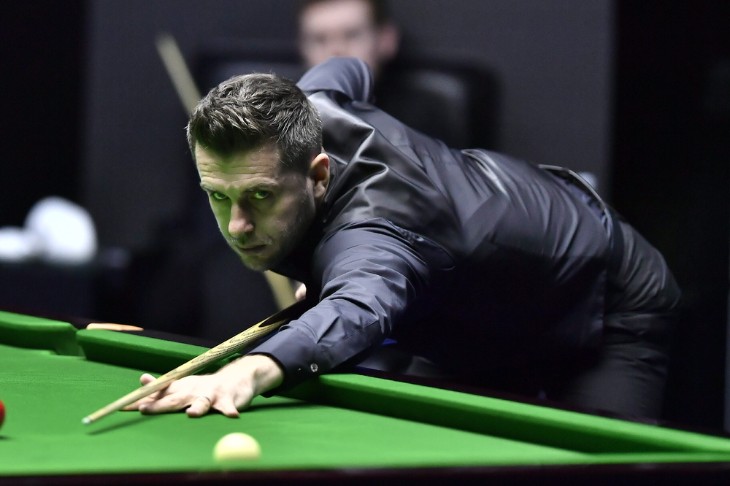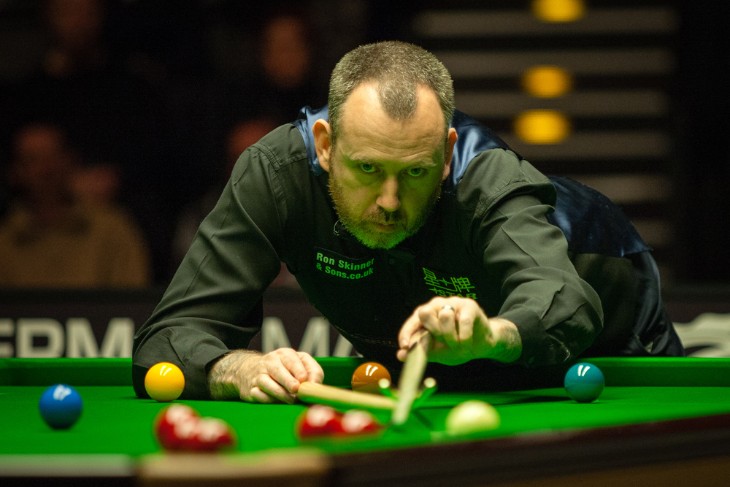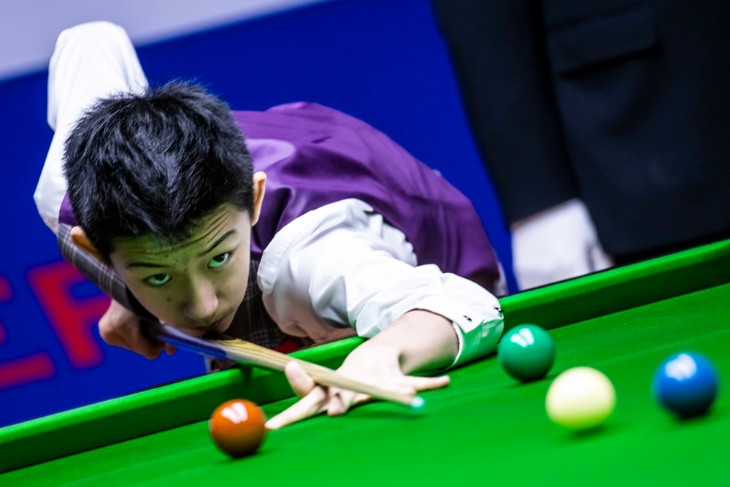Snooker is a game requiring both strategic thinking and skill, and often, the importance of nutrition is overlooked in this context. Yet, the connection between a player's diet and their performance at the snooker table is significant. This article will explore the lesser-known aspects of snooker, focusing on how nutrition plays a crucial, albeit hidden, role. It affects every precise shot and is a key factor in the intricate interplay between the cue and the ball, as players strive for excellence in snooker.
Physical Demands of Snooker
The physical demands of snooker may not be as overt or intense as those of more physically demanding sports, but they are nonetheless critical for sustained performance. Understanding and addressing these physical aspects can contribute significantly to a player's ability to excel in the game.
Stamina and Endurance:
- Snooker matches can be lengthy, especially in professional settings. Matches often span multiple frames, requiring players to maintain focus and precision over extended periods.
- Building stamina is crucial for enduring long matches without experiencing a decline in performance.
Body Positioning and Posture:
- Maintaining the correct stance and posture is essential for accurate shot-making in snooker. Players must bend at the waist, keep their chin on the cue, and ensure a stable foundation with their feet.
- Prolonged periods of maintaining these positions can lead to physical strain, emphasizing the importance of core strength and flexibility.
Concentration and Mental Fatigue:
- While concentration is primarily a mental aspect, it has physical implications. The effort to maintain a high level of focus can result in physical fatigue over time.
- Adequate physical fitness can contribute to improved mental endurance, helping players sustain their concentration throughout a match.
Precision and Fine Motor Skills:
- Snooker is a game of precision, requiring players to execute precise and controlled movements. Fine motor skills, such as a steady hand and a smooth stroke, are crucial for successful shot-making.
- Physical fitness can positively impact these fine motor skills, ensuring that players can consistently deliver accurate shots.
Break Building and Movement:
- Break building involves potting several balls consecutively, which requires players to move around the table strategically.
- Agility and quick movements may be necessary, especially when transitioning from one end of the table to another. Physical fitness contributes to improved agility and movement.
Injury Prevention:
- Although snooker is not a contact sport, players are not immune to injuries, especially those related to repetitive strain.
- A focus on physical fitness, including strength and flexibility training, can help prevent injuries and enhance overall durability.
Recovery Between Frames:
- Short breaks between frames require players to manage physical and mental fatigue efficiently. Physical conditioning can aid in quicker recovery during these brief intervals.
Long Tournament Days:
- In professional tournaments, players may need to play multiple matches in a single day. Physical fitness becomes crucial for maintaining performance levels throughout the tournament.

Mental Aspects of Snooker
The mental aspects of snooker play a pivotal role in a player's success, often distinguishing the great from the good. Snooker is a game that demands intense concentration, strategic thinking, and emotional resilience. One of the primary mental challenges in snooker is the need for unwavering focus throughout a match. Players must maintain concentration not only when at the table but also during their opponent's turns, anticipating and planning their next moves. The ability to shut out distractions and remain mentally sharp, even during extended periods of play, is critical for consistent performance.
Moreover, strategic thinking is a key mental component in snooker. Players must assess the table, plan their shots, and anticipate their opponent's moves, all while considering the position of the balls and the potential for future shots. This strategic element adds a layer of complexity to the game, requiring players to think several moves ahead. Successful snooker players often demonstrate a high level of cognitive flexibility, adapting their strategies based on the changing dynamics of the game. Additionally, emotional control is crucial in snooker, as the pressure of competition and the consequences of each shot can evoke a range of emotions. Maintaining composure in high-pressure situations, overcoming mistakes, and staying focused on the task at hand are essential for mental resilience in snooker. Overall, the mental aspects of snooker are inseparable from the physical game, shaping a player's ability to perform under pressure and make strategic decisions that can ultimately determine the outcome of a match.
Key Nutrients for Snooker Players
Snooker players, like athletes in any sport, benefit from a well-balanced diet that provides the necessary nutrients for optimal performance. Let’s take a closer look:
Carbohydrates:
Carbohydrates are the primary source of energy for the body. Snooker players need a sufficient intake of complex carbohydrates, such as whole grains, fruits, and vegetables, to sustain energy levels during extended matches. Carbohydrates are especially crucial before a match to fuel the body and support stamina.
Proteins:
Proteins are essential for muscle repair and maintenance. Snooker players engage various muscle groups, especially in the arms and back, during gameplay. Good sources of protein include lean meats, fish, eggs, dairy products, and plant-based options like legumes and tofu. Adequate protein intake supports muscle recovery and helps prevent fatigue.
Fats:
Healthy fats are essential for brain function and overall energy balance. Omega-3 fatty acids, found in fatty fish, flaxseeds, and walnuts, are particularly beneficial for cognitive function. Maintaining a balance of healthy fats in the diet supports concentration and mental clarity, important aspects of successful snooker performance.
Vitamins and Minerals:
Various vitamins and minerals play key roles in overall health and performance. For example:
- Vitamin D: Important for bone health, which is relevant for maintaining posture and preventing injuries.
- Calcium: Supports bone health and muscle function.
- B vitamins: Contribute to energy metabolism and mental focus.
- Iron: Vital for oxygen transport in the blood, preventing fatigue and supporting endurance.
Hydration:
Staying well-hydrated is crucial for concentration and physical endurance. Dehydration can impair cognitive function and lead to fatigue. Water is the best choice for hydration, and snooker players should ensure they drink enough before, during, and after matches.
Electrolytes:
During long matches, especially in warm environments or under hot studio lights, players can lose electrolytes through sweat. Replacing electrolytes with beverages or snacks containing sodium, potassium, and magnesium can help maintain fluid balance and prevent dehydration.
Pre-Match Nutrition:
Consuming a balanced meal a few hours before a match is crucial. This meal should include a combination of carbohydrates, proteins, and healthy fats to provide sustained energy and prevent hunger during play.
In-Match Snacks:
Easily digestible snacks, such as fruit, energy bars, or small sandwiches, can provide a quick energy boost during breaks in the match without causing discomfort or a drop in blood sugar levels.
Balancing these key nutrients in the diet helps snooker players sustain their physical and mental energy levels, promoting consistent performance throughout matches and tournaments. Individual nutritional needs may vary, so players may benefit from consulting with a sports nutritionist to develop personalized nutrition plans.
Pre-Match Nutrition
Pre-match nutrition is a critical component for snooker players to ensure they enter a game with optimal energy levels, focus, and stamina. The goal of pre-match nutrition is to provide the body with the right combination of nutrients to sustain energy throughout the match without causing discomfort or energy crashes. Timing and the composition of the pre-match meal are key considerations.
A well-balanced pre-match meal should be consumed approximately 2-3 hours before the game to allow for digestion and nutrient absorption. This meal should include a mix of complex carbohydrates, lean proteins, and healthy fats. Complex carbohydrates, found in foods like whole grains, fruits, and vegetables, provide a steady release of energy, ensuring players have the fuel needed for the duration of the match. Lean proteins, such as chicken, fish, or tofu, contribute to muscle repair and maintenance. Healthy fats, found in sources like avocados or nuts, provide a sustained energy source and support cognitive function.
Hydration is equally important in the pre-match phase. Players should begin hydrating well in advance of the game and continue to drink fluids leading up to the match. Avoiding excessive caffeine or sugary drinks is crucial to prevent dehydration and fluctuations in energy levels. Additionally, individual preferences and tolerances play a role in pre-match nutrition, so players may need to experiment to find the foods that work best for them without causing digestive discomfort. Developing a personalized pre-match nutrition routine can contribute significantly to a player's physical and mental readiness on the snooker table.
In-Match Nutrition
In-match nutrition is a crucial aspect of sustaining energy levels and mental focus during the course of a snooker match, which can extend for an extended period. While snooker is not as physically demanding as some sports, the concentration and precision required can be mentally taxing, making it essential for players to strategically refuel during breaks or intervals. In-match nutrition should focus on easily digestible snacks that provide a quick energy boost without causing discomfort.
Fruits, energy bars, and small sandwiches are examples of suitable in-match snacks. These options offer a combination of carbohydrates for immediate energy, a moderate amount of protein for sustained stamina, and minimal fat to avoid digestive issues. Players need to be mindful of the timing and quantity of these snacks to prevent energy crashes or feelings of sluggishness. Hydration remains crucial during the match, and players should continue to sip water to maintain optimal performance. Electrolyte-rich beverages can also be beneficial, especially in situations where players may be sweating more, such as in warm environments or under bright lights. Overall, in-match nutrition is about strategically managing energy levels and ensuring that the body and mind remain sharp throughout the duration of the game.

Post-Match Recovery
Post-match recovery is a critical phase for snooker players to facilitate physical and mental recovery after the physical and mental demands of a match. Proper recovery strategies can aid in reducing muscle soreness, replenishing energy stores, and preparing the body for subsequent matches or training sessions. One key aspect of post-match recovery is the intake of nutrients to support muscle repair and replenish glycogen stores. Consuming a balanced meal that includes a mix of carbohydrates and proteins within the first two hours after a match is crucial. Carbohydrates help replenish glycogen, the body's primary energy source, while proteins support muscle repair and recovery.
Hydration remains essential during the post-match period to replace fluids lost through sweat during the game. Rehydrating with water is crucial, and athletes can also consider drinks containing electrolytes to replenish sodium, potassium, and magnesium. Additionally, incorporating light stretching or cool-down exercises can aid in preventing stiffness and improving flexibility. Adequate rest is equally important; players should prioritize a good night's sleep to support overall recovery. Implementing these post-match recovery strategies helps snooker players maintain their physical well-being and ensures they are ready for subsequent matches or training sessions, contributing to long-term performance consistency.
Challenges and Solutions
Snooker players face various challenges related to nutrition, and understanding and addressing these challenges are crucial for maintaining optimal performance. One common challenge is the irregular and unpredictable schedule of snooker tournaments. Players may face back-to-back matches or long breaks between games, making it challenging to establish a consistent eating routine. Solutions to this challenge include carrying easily portable and nutritious snacks, planning ahead for meals, and being adaptable to different schedules. Developing a flexible nutrition plan that accommodates the uncertainties of tournament play can help players meet their energy and nutrient needs consistently.
Another challenge is the temptation of unhealthy food options at venues or during travel. Fast food, sugary snacks, and energy drinks may be readily available but can negatively impact energy levels and concentration. To address this challenge, players can proactively plan their meals, carry healthy snacks, and make informed choices when dining out. Education on the nutritional value of different foods, along with guidance from a nutritionist, can empower players to make healthier choices that support their performance goals. By being proactive and mindful of their nutritional choices, snooker players can overcome challenges related to inconsistent schedules and the availability of unhealthy food options, ensuring that their dietary habits contribute positively to their overall performance and well-being.
Summary
The importance of nutrition in improving snooker performance involves multiple aspects, including physical health, mental sharpness, and consistent energy. It's crucial to understand the specific physical requirements of snooker, such as endurance, accuracy, and strategic planning, to appreciate the need for a diet specifically suited to players' needs. This includes proper nutrition before matches for energy, during matches to maintain concentration, and after matches for recovery. A comprehensive approach to dietary habits is essential.
For more information:




.webp)


 (1).webp)




















